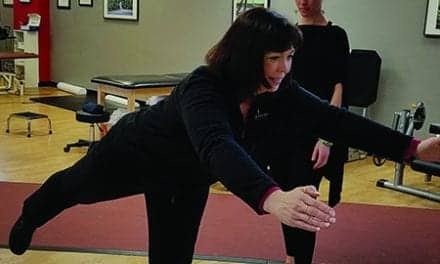Results yielding from two studies conducted by University of Illinois (UIC) researchers indicate that catching a weighted medicine ball can assist in improving balance and potentially help prevent falls among older adults.
A university news release notes that the studies’ results appear online ahead of print in Electromyography and Kinesiology and Experimental Brain Research.
The brain uses two strategies to maintain balance and prevent a fall following a bump, jostle, or stumble, explains Alexander Aruin, PhD, DPT, professor of physical therapy at UIC and principal investigator on the two studies.
In the first strategy, when the disturbance can be predicted, the brain activates muscles in anticipation of the jolt, “for example when walking down the street you see someone about to bump into you, you brace yourself,” Aruin says in the release.
The second strategy is corrective in nature. The brain engages muscles after the disturbance to prevent loss of balance, which may call or an extra step or changing body position, according to Aruin.
During the aging process, the release states that anticipatory postural control is lost. This, Aruin adds, results in a lack of preparatory activation of muscles and leaves only compensatory action.
Recently, the release states Aruin and his coworkers began to investigate whether special training or exercises could enhance anticipatory adjustments and help individuals use them. In one of the studies, Aruin and colleagues asked a group of healthy adults to stand and catch a medicine ball. In the second study, the researchers asked the same of a group of older adults.
The release reports that the researchers measured the electrical activity of leg and trunk muscles in order to pinpoint differences in the two age groups’ ability to generate anticipatory postural adjustments both before and after the single short training session.
The results suggest that improvements were observed in both groups. Among older adults, the researchers found that not only can they improve, but they can also improve at performing a task that was not part of the training.
A transfer effect was observed, Aruin says, telling researchers potentially what individuals learn in the training might be helpful with other activities.
Nearly all the subjects, Aruin adds, both young and old, enjoyed the training exercise.
Source: UIC




